Dislocations and the Holiness of Spirit
By Cherise Morris
i.
Perhaps this story starts in New Orleans, where I first felt the grace of place, on the corner of North Dorgenois Street in the 7th ward. My partner and I sat on the quaint patio of a breakfast place eating when we noticed a large yellow building across the way—The Church of I AM—with one lone Black woman stationed outside with diligence, blessing the monument with the contents of a white bucket full of some smoking thing.
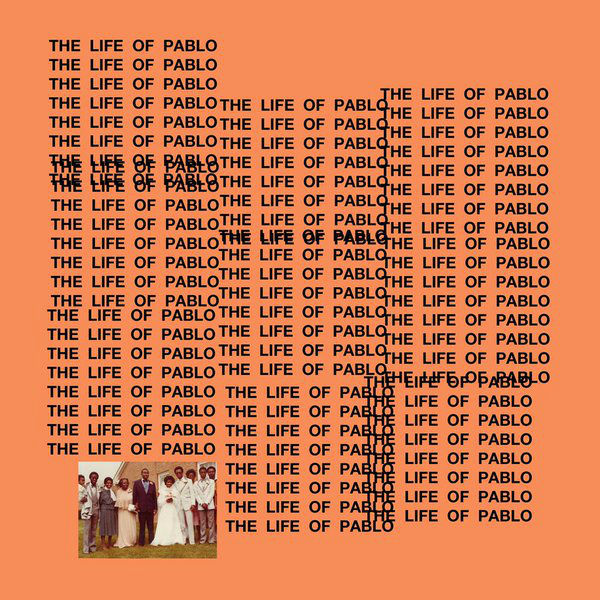 Or maybe it starts back home in Virginia, the night of a hurricane, when my sister introduced me to Kanye West’s music and my mother told me that infants could see the spirits. Thereafter whenever I heard my baby niece fussing with the wind, I would think nothing of it, assuming that she was busying herself with the company of some other atmospheric thing.
Or maybe it starts back home in Virginia, the night of a hurricane, when my sister introduced me to Kanye West’s music and my mother told me that infants could see the spirits. Thereafter whenever I heard my baby niece fussing with the wind, I would think nothing of it, assuming that she was busying herself with the company of some other atmospheric thing.
Or when I’m alone in my apartment in Providence and there, to punctuate the solitude, I feel like there’s some consuming thing. But regardless of where this feeling starts, it is now located somewhere at the intersection of the corner left plot of the graveyard at the Episcopal Dioceses of Rhode Island, a guttural groan of glory, and The Life of Pablo (TLOP).
ii.
I believe that if I like a song I’ll know, and if I’m meant to hear it, I will. That was my experience with track one of Kanye West’s seventh studio album. I wasn’t up on the TLOP buzz, (I prefer The Old Kanye) but this track fluttered into my life at the right moment. It found me the day after I returned from a formative and haunting trip to New Orleans. I came back with soul, and one morning when I happened to be listening, “Ultralight Beam” worked its way into my life.
We don’t want no devils in the house, God (Yes, Lord)/
We want the lord (Yes, Jesus)/And that’s it (Yes, God)/Hallej- hand over Satan (Yes, Jesus)/
Jesus praise the Lord (Yes, God)/Hallelujah, God (Yes, God)
iii.
I left for Louisiana with too many loose ends and was perturbed but not surprised to find them all still unwound after returning. The one thing I looked forward to with some enthusiasm was participating in a site-specific performance piece, entitled The DoubleBack: Inquiries into Freedwomen’s Gaze, a welcomed reprieve from the monotony of schoolwork. On the first day of rehearsal—or rather convening—we were to go visit our place of ritual. I, however, would miss the first rehearsal, so I decided to go to the site the afternoon before the first rehearsal. In between trivial assignments and trifling meetings, I took my first trip there, alone.
The Diocese was a twenty-minute walk from my house, and I’m unaware of whether the decision was fully conscious, but either way, “Ultralight Beam” was blaring on repeat by the time I approached the expansive rectangular structure of stone and mortar and grayness. Up from the road, mounted on a hill, was the cemetery, a place I had probably past by countless times without pausing. The stones are decrepit, some more than others, and much of the burial ground slightly sagging with the wear of a hundred and a half years. Off to the far left, near an office building next door, was the burial of three enslaved Black women, Phillis, Fanny, and Rose. The footstone towered above those to its right, the lavish and decaying headstones of the state’s former white (slave-owning) elite.
Upon entering the burial yard, the choir crescendoed on the note “Faith,” and my legs started to tingle, feeling like Jello—as if I had been bouncing on a trampoline for hours and they had just reunited with the ground.
I had two plump aubergine seedp ods—souvenirs I had carried back from New Orleans—which I placed by the headstone, a little piece of somewhere else as offering.
ods—souvenirs I had carried back from New Orleans—which I placed by the headstone, a little piece of somewhere else as offering.
I stood close for a moment then, frightened, felt as if I were an intrusion and backed away. There was something so striking about the stone’s presence. In a cluttered field of rocks and weeds arranged in chaos, this marker seemed to be slumbering in peace.
Deliver us serenity…..
My left hip caught a tremble.
Deliver us peace…..
Felt a wind brush up against my right side.
Deliver us loving…..
A single black-blue long-beaked raven landed nearby and inhaled.
And I wept, for reasons that are still partly unknown to me, and jotted down the tail end of my own incomplete sermon.
To every one of you, split backs, skulls, skies, sidewalks, ripped apart. To every one of you laid to rest with the serenity of knowing. To every one of us who feels like dying each day but keeps going.
I drifted toward a picnic table a few feet up from the cemetery and sat for a moment, reflecting on the serenity of the yard down below. The beauty of the sleeping.
iv.
I’ve never thought myself as Christian, although I am strongly rooted in the Black Protestant tradition. I never subscribed to any one all-powerful God, although I learned how to relate to the world in terms of possession and dispossession. My mother let me make the choice to never to be baptized myself, though I kept track of time through Baptismals and mid-summer nights revivals. I try not to be confined to any institution, and the church is no exception—that, however, doesn’t mean that I don’t derive a great part of who I am from that communal well, that historical burden-turned-source-of-power, that Black Soul.
v.
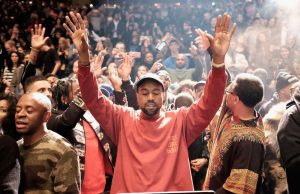 We on an ultralight beam/This is a God dream/This is a God dream/
We on an ultralight beam/This is a God dream/This is a God dream/
This is everything/Everything (Thing, thing, thing)
Nowadays it’s all about being woke.
We pride ourselves on the specter of our (public) alertness and value attentiveness to that which is perceptible around us. It’s about being awake and in ‘the know.’ But sometimes the most beauty resides in greeting the unknown—being present without feeling fully awake or aware.
The act of sleeping can be a powerful thing. In our sleep, we get lost and come back again. We wake up, wondering, somewhere distant yet close, somewhere between the witnessed and the impossible to bring forth new meaning.
I’m interested in attuning to that which is imperceptible.
vi.
In the 48 hours between my first and second visits, I hadn’t eaten much.
A heavy air hits me, heavy…as I move inward toward the burial. I ascend the hill to the cemetery. On my walk I had picked three violet flowers, to leave near the purple seedpods from the first day.
A bumblebee buzzes near them for a second.
I read the fraught language of the footstone—got close enough to touch—which I had not done the first day. And of course I am listening to the song in ritual.
 I took a rest at the picnic table and let the sun soak me up. Eyes closed and back prone toward the sky, I experienced color, true color…Deep magenta to blood red to tangerine to a settled sunset orange then pale yellow then a startling lime green and back to white beaming light.
I took a rest at the picnic table and let the sun soak me up. Eyes closed and back prone toward the sky, I experienced color, true color…Deep magenta to blood red to tangerine to a settled sunset orange then pale yellow then a startling lime green and back to white beaming light.
Black is the absolute saturation of color.
I listened through the end of Chance the Rapper’s verse in the song, fading away into the beaming “Ultralight” then opened my eyes and watched the color melt away from my sight line to an aged, muted black and white that filtered my vision. The bright yellow dandelions became the only intelligible hue from my vantage point.
What the fuck is happening? (I don’t know if you’ve ever started seeing in black and white all of a sudden, but if you ever have, you must understand how much that shit will fuck you up.) I turned around, 360 degrees, in awe. Part of me was thinking I was irrational; the other part was absorbed in the moment, enlightened and enlivened.
Then it happened, my phone rang, and it all vanished. My fingertips tingled as the color seeped back in, and my eyes readjusted to normal.
vii.
There is something disgraceful about attempting to write these ephemeral occurrences into meaning, yet something so fitting about transcribing such a thing without a definite conclusion.
Perhaps, in its transcendence, this tale is most accurately located—rooted—in a place of
Blackness that has no boundaries, no limits, no imaginative confines on the soul or the heart or the spirit that moves beyond our bodies. A place of unbridled Black joy-fury-rage-prophecy-love-resilience, that is rendered by way of life at the margins—something real, something that is everything.
It is the second-sight of feeling—affect—that lingers in the proliferation of color, flourishes in the depths of the ego, moving through the experience of being the most disrespected, the most unprotected, the most neglected.
To be Black and woman and feeling is to live through your own second line.
viii.
On the 21st day of May, I make two visits to the site, both quite impromptu. The first is in the afternoon. I get there and notice two women sitting outside of the retirement home next door and someone working on roof across the way. I leave two lavender sprigs near the purple flowers, which are near the violet seedpod.
I sat, eyes closed, mellowing into the colors again. As you might suspect, “Ultralight” is on. The green is more fluidly integrated into the red-orange palate this time around, but all the colors are flickering with more speed and intensity than the day before.
I had difficulty settling into my body and resisted the impulse to open my eyes several times, driving off the fear of seeing.
I open them at end of one rotation of the song and the colors around me diminish to a faded lavender, the dandelions still standing out and anything else in a hue of red. I noticed small reddish flower petals scattered around the marker, blinked myself back to normal vision, and looked up for the women who had been chatting by the retirement home. They were gone. I didn’t notice the construction worker anymore either.
I stop back again later that evening. The sun was setting and I wanted to see what going at varying times of day would be like. I must be communicating in some unsung way I told myself. I wanted to expand my limits and my knowing, so I returned each day with diligence. I closed my eyes and listened.
There was a fierce wind…then…practically unconsciously, I took a deep… drawn out… calming… almost too calming… breath…that bent my body back with it, and then, an overwhelming wind funneled toward me and moved me to my feet. I gasped, struggling to breathe through the fierce wind, exhilarated by my fear (not of malevolence, but of knowing.)
I left, slightly disoriented, reeling from a sense of dislocation. I ended up calling an Uber to go home, I was so faint . By the time I turned back, I could see the lights of the strip mall beaming through what seemed like wilderness.
. By the time I turned back, I could see the lights of the strip mall beaming through what seemed like wilderness.
ix.
ego:
the organized conscious mediator between the person and reality especially by functioning both in the perception of and adaptation to reality.
Maybe I’m an egotist for thinking I heard from spirits. To wonder if they would waste their time communicating to me, when there must be so many other things to occupy them in the infinity of their realm, is not for the faint of heart.
x.
On that ground, I let myself coast somewhere between the ‘here and now’ and the mysterious then. I had reckoned with some small part of whatever the fuck was waiting beneath the surface of the tangible, seen what could not be translated, and ended up in a space panic. I was afraid of my power, afraid of seeing, afraid of the mining of history.
I was walking somewhere the next day—still sobered and trying to piece together the experiences into some coherence—when I ran into someone I know. I had been feeling the need for another human’s company so I struck up a conversation that was going well when out of the blue she asked, “Do you like Providence?”
This person, though I do not know her well, is one of the wisest people I think I’ve ever met, and because of that, I trusted that she would not pose any question without reason.
“Sometimes,” I mean, “I guess I do…”
She takes her time, configuring her language with care, “I feel like… there is something… spiritually… so heavy. This place, I mean, I think you can just feel—”
“You can just feel something heavy.”
“Exactly. Something.”
Not ominous, just heavy. Not a harbinger, just weighted.
This ground reminds you of the pain induced to produce its beauty and wealth and prosperity.
This ground, like so many, is ripe for those of us who have that second-sight of feeling mined from experiences at the margins of society, as Black women, as the dispossessed and the dislocated, we have the gift of Soul.
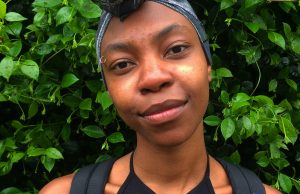 Cherise Morris is a queer Black (with a capital B) feminist-dreamweaver interested in community education, Black women’s legacies of resistance, abolitionist futures, urban agriculture, and Black folkloric traditions among other things. She recently graduated from Brown University with a degree in Africana Studies, and began a publishing internship at Truthout in July. She’s a Detroit-transplant, from rural Virginia by way of Providence, RI. Tweet her @_cherisemorris_.
Cherise Morris is a queer Black (with a capital B) feminist-dreamweaver interested in community education, Black women’s legacies of resistance, abolitionist futures, urban agriculture, and Black folkloric traditions among other things. She recently graduated from Brown University with a degree in Africana Studies, and began a publishing internship at Truthout in July. She’s a Detroit-transplant, from rural Virginia by way of Providence, RI. Tweet her @_cherisemorris_.

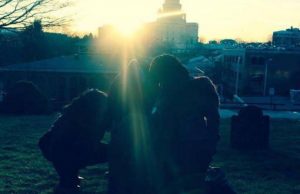
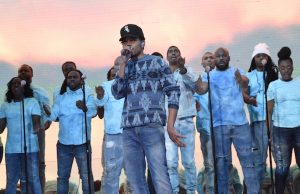
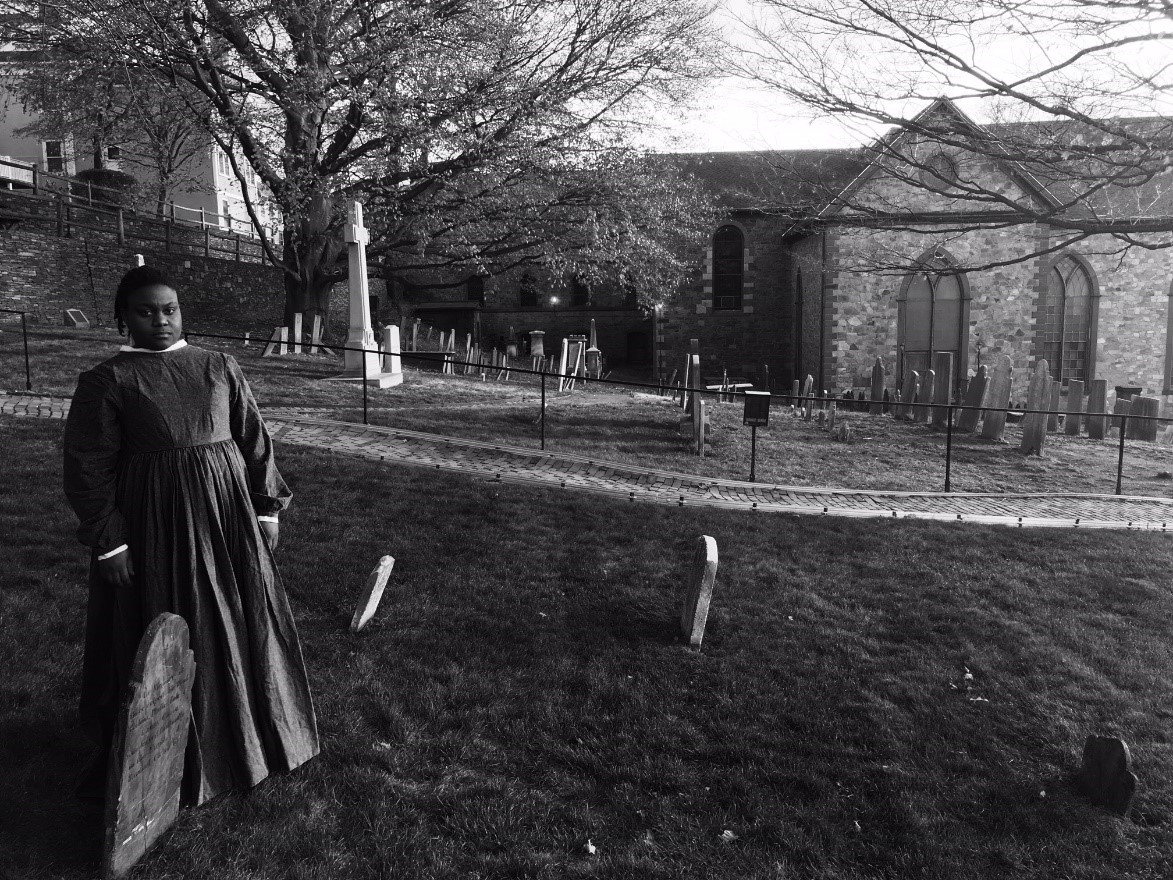



0 comments